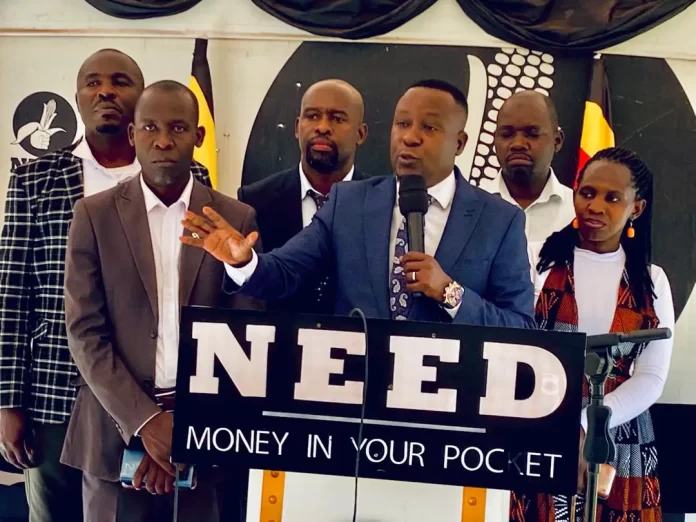
The National Economic Empowerment Dialogue (NEED) party has urged the government of Uganda to uplift the private sector to improve the country’s economy.
Joseph Kiiza Kabuleta, the President of the NEED party, said during the party’s weekly presser that took place on June 10, 2024, at the party headquarters in Rubaga, Kampala, that the public sector, which is funded by the tax payer’s money, is very enormous compared to the private sector, stating that for an economy to grow, the private sector should be performing better than the public sector.
“In most economically performing countries, the private sector carries the economy, but in Uganda, it is the contrary. We have a lot of people on the government pay roll; we have a classified budget that increases daily; over 500 RDCs with assistants; a lot of people working as government spies; and others who are just being paid for nothing. All these are earning the taxpayer’s money,” he said.
He said that for the government to uplift the private sector, the middle-class economy has to be revived, citing that Uganda’s economy has no middle class but rather the political class, which is the rich and the poor.
“During the budget allocation, money to pay government service providers who are middle-class should be allocated since these employ a huge number of people. The middle-class economy, which has been destroyed, should be revived in order for the private sector to perform well economically. Right now, all we have is the “boda boda” economy, which is work and eat,” Kabuleta said.
Kabuleta noted that the Bank of Uganda’s lending rate should be reduced from 10.25% in order for the public to benefit from bank loans to improve their businesses, adding that this will improve the economy of the country.
“When the local banks get loans from the central bank, whose lending rate is 10.25%, those banks will also add their lending rate, and the same will be done by the money lenders. This makes it hard for the public to access capital, which is bad for the economy,” he said.
This comes as the parliament is set for the budget reading process, which will take place on June 13, 2024. A number of people are questioning which sector will be allocated more funds and how the budget will help deal with the poor economy.














